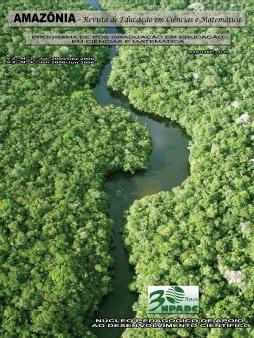Narratives of crisis: identity crisis or crisis of meaning?!
DOI:
https://doi.org/10.18542/amazrecm.v2i0.1672Keywords:
narrative research, crisis narratives, professional developmentAbstract
This article is about a review of a broader research on the understanding of the professional development of Mathematics teachers, especially the results of the analysis of one of the selected categories, the projectors and the crisis narratives. This analysis was theoretically supported by Larrosa (2002). To carry out the research, we adopted the qualitative research, with a narrative focus, based on semi-structured interviews about the life history of a teacher who teaches mathematics in Basic Education. Based on a concept of professional development taken from a continuous perspective, idealized in a broader context of teaching work, permeating crises and conflicts, the analysis shows that the teacher's crisis reports are related to factors such as: low salaries, conflicts in her current institution Lack of social prestige and insecurity. His reports reveal that initial training did nothing to address the "new" changes in education. It shows that their lack of enthusiasm is associated with the emptying of the useful meaning of their formation, which results from the overvaluation of their exchange value. However, a crisis narrative can construct the present as a critical moment in the double sense of the word as a decisive moment and, at the same time, as a moment in which the subject critically recovers his own history, appropriates himself critically To find out where it is and to decide its own movement (LARRROSA, 2002). The individual, by critically restoring his history, can rethink the past, think the present, and (re)construct his own future. The teacher, in her crisis narratives, shows that, by critically recovering her story, by putting out all her "revolt", she opens a "door" that will possibly show a new path to be taken. This seeks new challenges for their professional developmentReferences
BUENO, B. O.e LAPO, F. R. O abandono do magistério: vínculos rupturas com o trabalho docente. PSICOL.USP, 2002, vol.13, n. 2, p.243- 276.
CANÁRIO, R. A experiência portuguesa dos centros de formação das associações das escolas. In: MARIN, A. J. (Org). Educação Continuada. Campinas, SP: Papirus, 2000.
CONNELLY, F. M. e CLANDININ, D. J. Relatos de experiência e investigación narrativa. In: LARROSA, J. E. et al. Déjame que te cuente: ensaios sobre narrativa y educación. Barcelona: Editorial Laertes, 1995.
FREIRE, P. Política e educação. São Paulo: Cortez, 2003.(Coleção Questões da Nossa Época; v. 23)
GARNICA, A. V. M. História oral e educação matemática: de um inventário a uma regulação. ZETETIKÉ. Campinas, SP: UNICAMP-FECEPEM, v. 11, n. 19. p. 09-55, 2003.
GONÇALVES, T. O. Formação e desenvolvimento profissional de formadores de professores: o caso dos professores de Matemática da UFPa. Campinas, SP, 2000, 207p. Tese (Doutorado em Educação Matemática) - Centro de Educação, Universidade Estadual de Campinas.
IMBERNÓN, F. Formação docente e profissional: forma-se para a mudança e a incerteza. 3. ed. São Paulo, Cortez, 2002. (Coleção Questões da Nossa Época; v. 77)
IMBERNÓN, F. La Formación del Profesorado. Barcelona: Ediciones Paidós, 1994.
LARROSA, J. Niestsche & a Educação. Belo Horizonte: Autêntica, 2002.
MELO, G. A. A formação inicial e a iniciação científica: investigar e produzir saberes docentes no ensino de álgebra elementar. Campinas, SP, 2003, 242p. Tese (Doutorado em Educação) - Centro de Educação, Universidade Estadual de Campinas.
NÓVOA, A. O passado e o presente dos professores. In: NÓVOA, A. (Org). Profissão professor. Porto: Porto Editora, 1991.



